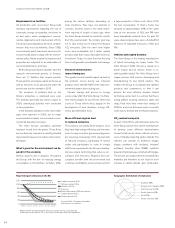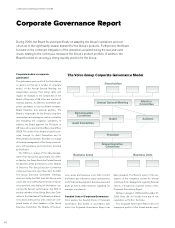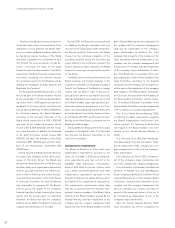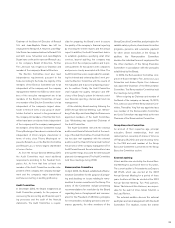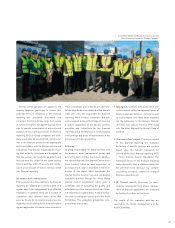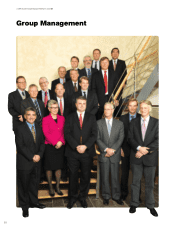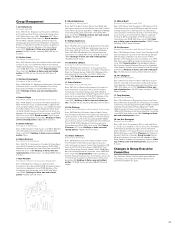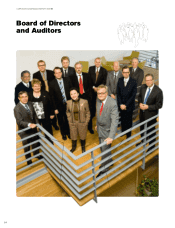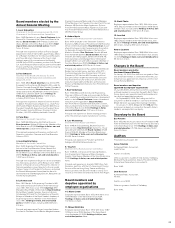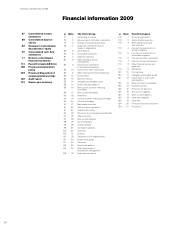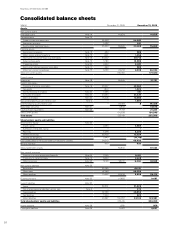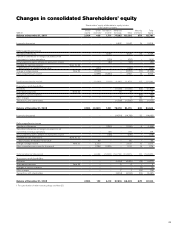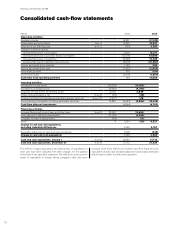Volvo 2009 Annual Report Download - page 65
Download and view the complete annual report
Please find page 65 of the 2009 Volvo annual report below. You can navigate through the pages in the report by either clicking on the pages listed below, or by using the keyword search tool below to find specific information within the annual report.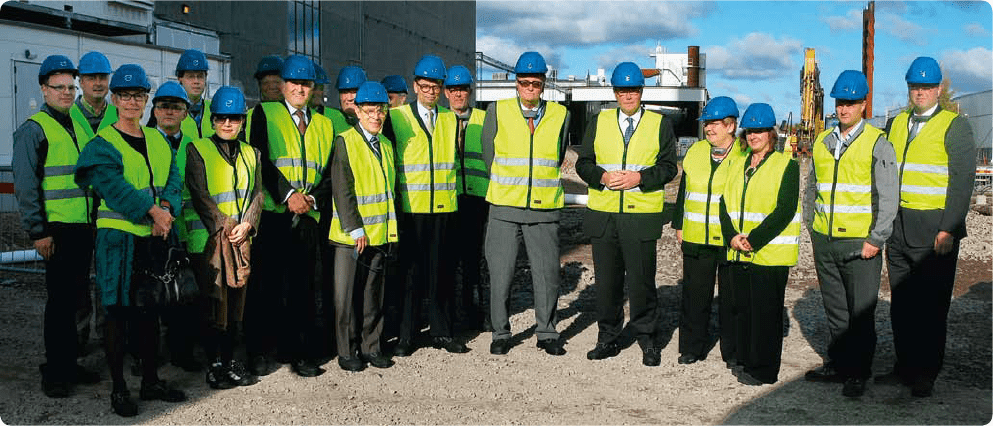
Several control activities are applied in the
ongoing business processes to ensure that
potential errors or deviations in the nancial
reporting are prevented, discovered and
corrected. Control activities range from review
of outcome results in management group meet-
ings to specic reconciliation of accounts and
analyses of the ongoing processes for nancial
reporting. CFOs in Group companies are ultim-
ately responsible for ensuring that control activ-
ities in the nancial processes are appropriate
and in accordance with the Group’s policies and
instructions. They are also responsible for ensur-
ing that authority structures are designed so
that one person can’t perform an activity and
then perform the control of the same activity.
Control activities within IT security and mainte-
nance are a key part of Volvo’s internal control
over nancial reporting.
Information and communication
Policies and instructions relating to the nancial
reporting are updated and communicated on a
regular basis from management to all affected
employees. In addition, there are a number of
committees and networks within Volvo that
serve as forums for information and discussions
regarding issues relating to the nancial report-
ing and application of internal rules. Included in
these committees and networks are represen-
tatives from the business areas and the Group’s
staff units who are responsible for nancial
reporting. Work in these committees and net-
works is aimed, among other things, at ensuring
a uniform application of the Group’s policies,
principles and instructions for the nancial
reporting and at identifying and communicating
shortcomings and areas of improvement in the
processes for nancial reporting.
Follow-up
Ongoing responsibility for follow-up rests with
the business areas’ management groups and
accounting and controller functions. In addition,
the Internal Audit and the Internal Control func-
tions conduct follow-up and supervision in
accordance with what is described in the intro-
duction of this report. More specically, the
Internal Control function runs and coordinates
evaluation activities through the “Volvo Group
Internal Control programme”, which gives a
systematic way of evaluating the quality and
ef fectiveness of the internal control over nan-
cial reporting on a yearly basis. A yearly evalua-
tion plan is settled and presented to the Audit
Committee. This evaluation programme com-
prises three main areas:
1. Management controls: Self assessment pro-
cedure carried out by management teams at
business area and business unit level as well
as local company level. Main areas evaluated
are the adherence to the Group’s nancial
directives and policies found in FPP along
with The Volvo Way and the Group’s Code of
Conduct.
2. Transaction level controls: Processes related
to the nancial reporting are evaluated
by testing of specic routines and controls
based upon the Group’s framework for
in ternal control over nancial reporting, VICS
– “Volvo Internal Control Standards”. The
framework focus on the nancial reporting
areas deemed to have a relatively higher risk
for potential errors because e.g. complex
accounting principles, complex or changed
business operations etc.
3. IT General controls: Processes for main-
tenance, development and access manage-
ment of nancial applications are evaluated
by testing of routines and controls.
The results of the evaluation activities are
reported to the Group management and the
Audit Committee.
In October 2009, the Board of Directors visited
Volvo Powertrain’s plant in Skövde, Sweden.
61





